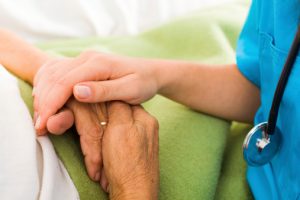 A new study has found that one in every four seniors who stay in the hospital has a superbug on their hands. Furthermore, seniors who stay in long-term care or a post-acute care facility will acquire new superbugs throughout their stay.
A new study has found that one in every four seniors who stay in the hospital has a superbug on their hands. Furthermore, seniors who stay in long-term care or a post-acute care facility will acquire new superbugs throughout their stay.
The study looked at seniors who were recently admitted into a hospital for medical or surgical issues and required temporary care.
Advertisement
The researchers studied 357 seniors and found that one-quarter of them had at least one multidrug-resistant organism – or superbug – on their hands when they checked in from the hospital to post-acute care facility.
After two weeks and then monthly for up to six months, the patients were tested again and found that the superbugs persisted and more seniors acquired them as well.
Lead author Lona Mody said, “We’ve been educating healthcare workers for decades about hand hygiene, and these numbers show it’s time to include patients in their own hand hygiene performance and education.”
A high amount of superbugs on seniors’ hands increases the risk of transmission to other seniors. This can be harmful or even fatal in frail seniors. The researchers suggest that high antibiotic use increases the risk of obtaining a superbug within a post-acute care facility.
The overuse of antibiotics is what contributes to bacteria becoming drug-resistant, which makes them more dangerous.
Advertisement
Mody added, “Patient hand-washing is not a routine practice in hospitals. We need to build on the overarching principles we’ve already developed with adult learning theories and bring them to patients.”
Mody and her team developed strategies in order to reduce the spread of superbugs within hospital and care facilities. Some key points included, adding educational posters about hand hygiene, implementing educational modules and trivia questions about hand-washing, and having an infection preventionist on site to ensure proper procedure is being carried through and there is soap and antibacterial sanitizer available.
Source:
http://www.eurekalert.org/pub_releases/2016-03/uomh-1i4031416.php
